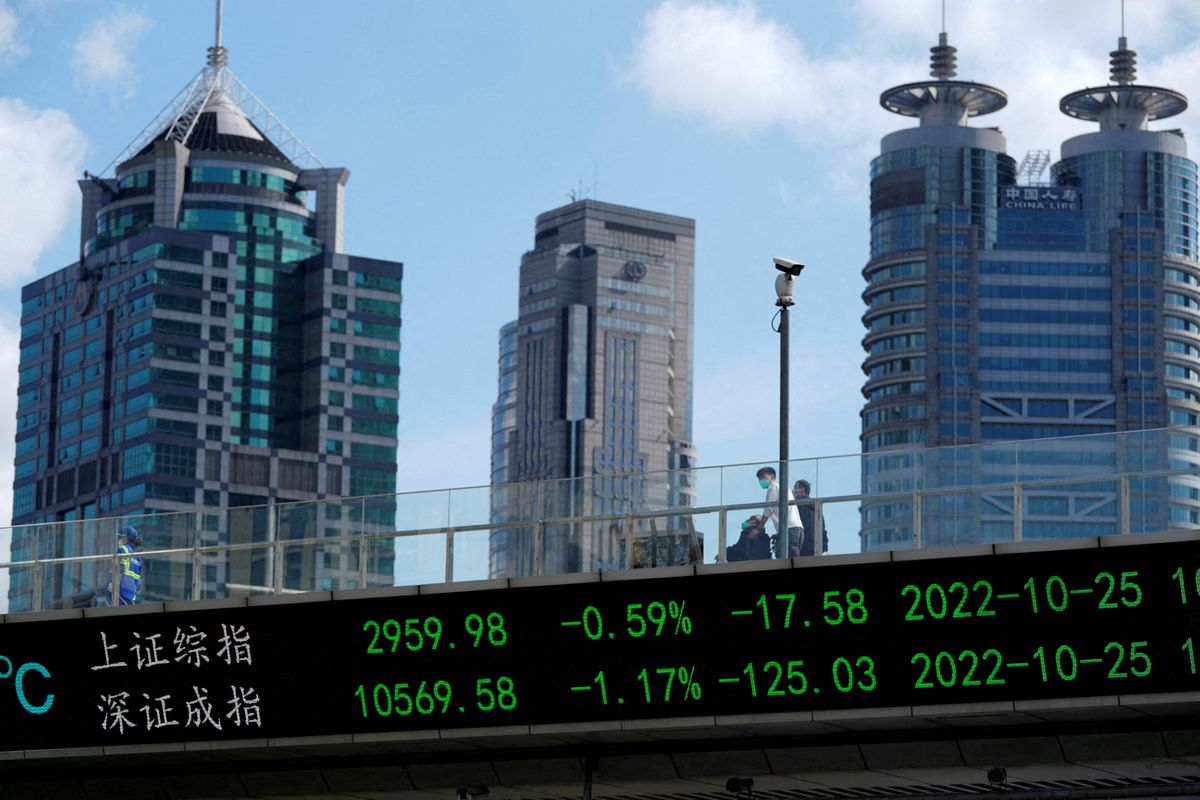China's stock market adopts new measures to boost investor confidence
China's stock market is getting a makeover to help get over its slump.

A few minutes every morning is all you need.
Stay up to date on the world's Headlines and Human Stories. It's fun, it's factual, it's fluff-free.
The backstory: China took a big hit after three years of grappling with COVID restrictions. In 2022, the economy grew by 3%, way below the government's target and one of the weakest growths in nearly 50 years. To kickstart a recovery, the nation launched a fresh set of rules for initial public offerings (IPOs) in February that aimed to simplify and improve the process. IPOs are when companies officially enter the stock market by offering shares to the public. Leading the charge was the China Securities Regulatory Commission (CSRC), which hoped to encourage new listings and boost company fundraising.
But China’s slower-than-expected economic recovery post-COVID is weighing on the stock market. On top of that, investor confidence in China’s market is at a low over concerns of spillover from the country’s property market crisis and geopolitical tensions.
The development: China's stock market is now getting a makeover to help get over its slump. Over the weekend, the CSRC revealed a campaign with a bunch of new measures. One is to gradually slow down the IPO train to aim for a balance between investing and fundraising, which kind of rolls back that strategy it unveiled in February. It’s also tightening the rules on how companies are refinancing, especially those that might be struggling. While the exact timeline isn't spelled out, financial experts predict a more thorough process for vetting IPOs and longer waiting times for companies in the IPO queue.
Over 650 companies are waiting for their turn to be listed on the Shanghai and Shenzhen stock exchanges. Companies like JAKA Robotics and the agricultural heavyweight Syngenta are all looking to be listed. There's also a buzz that Syngenta might aim for an around US$9 billion IPO later this year.
China is also on a mission to shore up investor confidence. To do this, it’s slashed the stamp duty on stock trading in half, and this change just kicked in this week. Alongside that, the fees brokers pay for transactions to the exchanges have been trimmed down. And there's more on the horizon – Chinese stock exchanges are planning to make it smoother for investors to get funding by lowering margin requirements starting from September 8. On top of that, mutual fund companies are taking a cue from the CSRC and are in the process of reducing their management fees.
To make sure small investors are safeguarded, the CSRC is tightening up the rules around major shareholders selling their stakes. And for the investors out there, CSRC has given a nod for 37 new retail funds. This should make it easier for people to jump into index funds and give a boost to equity funds. The CSRC is even considering changes to share repurchase rules, which could be a silver lining for investors if share prices suddenly drop.
Key comments:
"Slowing the pace of IPOs will have little impact on the equity markets but will further dampen access to capital for the private sector at a time when the economy sorely needs a boost," said Orient Capital Research Managing Director Andrew Collier.
“The implication of the stamp duty tax cut is much bigger than just some trading cost savings for investors, as it sent signals to the market that the top management pays great attention to China stock market, to revitalize the investment sentiment,” said Chris Liu, senior portfolio manager for mainland Chinese stocks at Invesco.
“While the Chinese government managed to lift investors’ sentiment temporarily, more concrete measures are required to resolve the property sector crisis and … to reverse bearish expectation for the China economy,” said Ken Cheung, chief Asian foreign exchange strategist for Mizuho Bank.




Comments ()